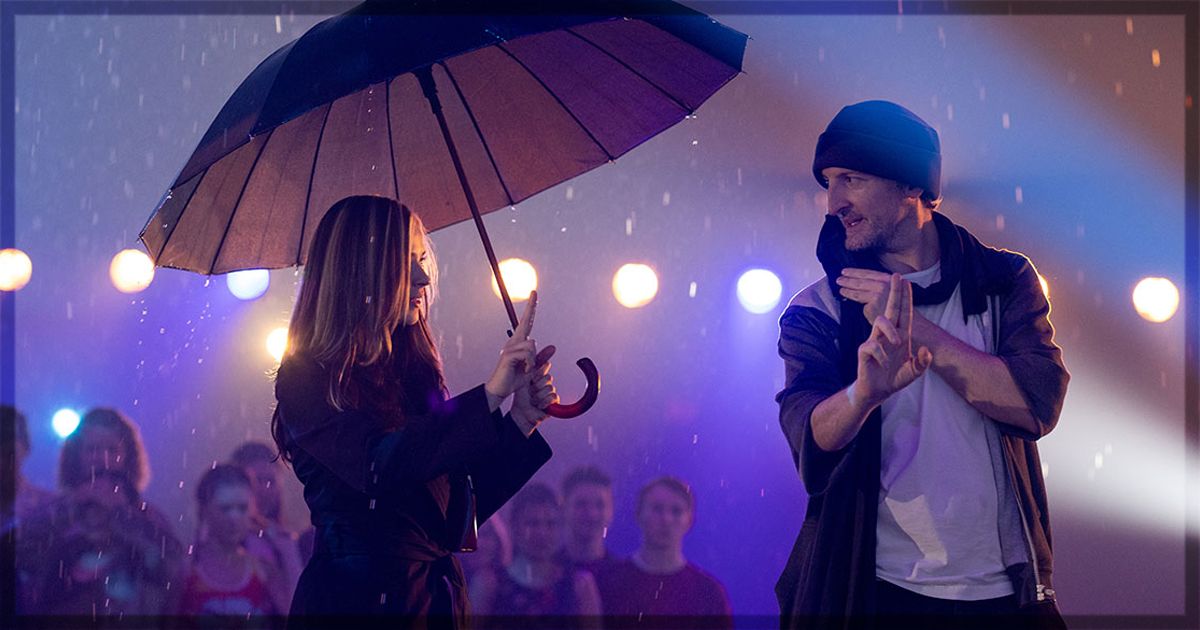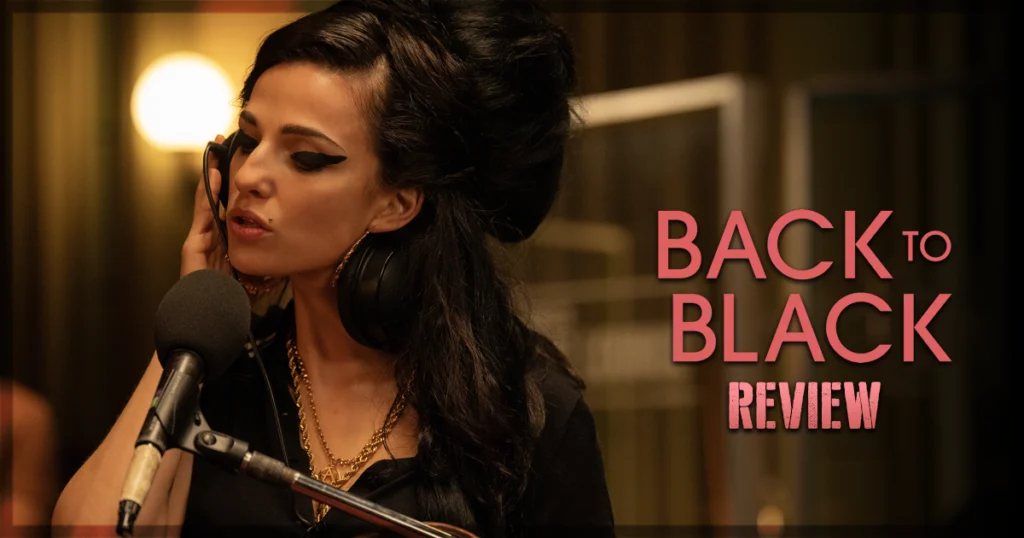2017’s The Greatest Showman is a musical drama whose popularity I struggle to understand. For all its huge setpieces and hyper-stylised choreography its narrative and thematic substance was cloying and often faux, with overwhelmingly bland songs – minus Rewrite the Stars – to boot. Director Michael Gracey at last returns with his sophomore feature Better Man, a musical biopic depicting the life of Robbie Williams. Although, if the film is anything to go by, there’s still some work to be done before the title of “Better” can be claimed.
Robbie Williams is a famous English singer best known for his colourful pop songs and unfiltered persona. Previously a member of the 90s boy band Take That, Williams rose to prominence as a solo artist, yet has been open about his personal struggles behind the scenes, including battles with addiction and feelings of imposter syndrome. Better Man, named after one of his most popular songs, tells the story of Williams’ childhood, his rise to fame and struggles with his inner demons. Distinguishing itself from other musical biopics is the choice to portray Williams as a CGI chimpanzee (Williams voices himself), a decision made to convey Williams’ feelings of being “less evolved” than others.
However noble Williams or Gracey’s intentions were, the film struggles to shed the connotations of vanity. Stories of tortured pop stars are a dime a dozen, whether fictional or genuine. When you strip the film down to its skeleton, akin to Williams’ Rock DJ music video, there’s little about Better Man that narratively distinguishes it from other movies of its calibre. Williams in the film is shown as a child growing up in working class Stoke-On-Trent and, as a teenager, charming his way into Take That with nothing but a cheeky smile and the confidence of a veteran. Yet behind his larger than life exterior and desire to entertain is crippling insecurity. Despite the fans Williams’ amasses with his music the only person he really wants to please is his absentee father Peter (Steve Pemberton). His lust for fame comes from abandonment issues and the constant need to fill a deep inner void of loneliness.
This legitimately compelling observation is mired and cheapened by how Williams is portrayed as a character. Large stretches of the film play like an anthropomorphic Wolf of Wall Street – Williams drinks, smokes and fornicates his way through encounter after encounter, the camera spinning and cutting in flailing fashion, as if even the cinematography has trouble keeping up with his antics. His taking of other people for granted and his self-pity is deliberate, as per the designs of the character arc. But his open vulgarity and constant flip flopping between party animal and depressed artist is written so heavily by the numbers that Williams the character gradually goes from cheeky to insufferable. His dialogue is not charismatic in its crudeness – it’s just crude. His actions don’t come across as someone struggling to make peace with his insecurities, but as a pretentious delinquent basking in woe-is-me escapades. That Williams voices his own dialogue generates feelings of conceitedness rather than humility.
Style can be a big factor in letting a film of this kind shine – 2019’s Rocketman, which told the story of Elton John, used John’s songs as thematic links to the key moments in his life, thus elevating the emotional impact. The style utilised in Better Man borders on sensory overload. The camera is seemingly always moving whether between locations or through different phases of metaphorical ecstasy, such as a scene when Williams’ crashing his car leads to an image of him seemingly struggling to swim underwater. Some of these instances feel more random than imaginative, such as a strange sequence through London where Williams and Take That dance to Rock DJ for three minutes before the story resumes. There’s clearly a lot going on with the choreography but it’s weirdly so coordinated that it looks and feels more like CGI than the great human effort on screen. The visuals are certainly colourful, but the grating sound design and overwhelming filmmaking undermines what may have otherwise been picturesque imagery.
Like The Greatest Showman, Better Man is an apex example of all style and minimum substance, with even the style often coming off as obnoxious rather than immersive. This extends to the central gimmick of Williams being portrayed as a chimpanzee, while everyone else remains human. Its usage is to highlight Williams’ feeling of difference from other people, and his acceptance that he is enough despite his faults. A poignant idea for sure, but because the film’s only means of portraying Williams’ self-doubt is through him constantly seeing hallucinogenic versions of his past selves calling him worthless, culminating in a fight between himself and these other monkeys, the creative choice feels as shallow as it is bizarre. Despite the massive scale of the picture, it’s constantly telling rather than showing, taking us through the usual motions of fame’s addictive but crippling power, just with a CGI chimpanzee in the mix.
In one scene, a keyboard player criticises Williams’ early song writing, telling him “you’ve written lyrics you think other people want to hear“. Better Man relies on a generic narrative that it thinks other people want to see. What’s especially frustrating is that sparks of brilliance are present. The odd scene, such as one with Williams, his then girlfriend Nicole (Raechelle Banno) and a hospital, convey huge parts of Williams’ life and its emotional effects on him, with just a few images. These moments properly take advantage of cinema’s visual medium, but even nuggets of gold can be found within the film’s endless streams of dialogue. A group therapy scene occurs towards the end of the film where Williams discusses how getting everything you want can put your vulnerabilities into the spotlight. It’s one of the few moments where the film felt genuinely sincere in its examination of theme and subject matter. What a shame that so many of its aims are obfuscated by hollow style and repetitive displays of existentialism.
Throughout the film, Williams, and his loving grandmother (Alison Steadman), are observed watching British comedy skit show The Two Ronnies together. I mention this because I also loved watching The Two Ronnies with my grandparents, and I found myself dwelling on those memories as a way of blocking out Better Man. It’s big and rambunctious but fundamentally superficial. It lacks the idiosyncratic charm or flair of the man whose life it is attempting to portray. Perhaps there’s value to be taken from its central message on being enough, but as films and shows like Barbie, Inside Out 2 and RWBY have all tackled this theme with far more nuance and creativity, one just wants to recommend those titles instead. Diehard fans of Williams will hopefully find more to enjoy in this extravaganza, but this critic would rather view this life thru a different lens.
2 stars
Better Man will be in theaters on December 25, 2024.
Learn more about the film, including how to buy tickets, at the official website.


